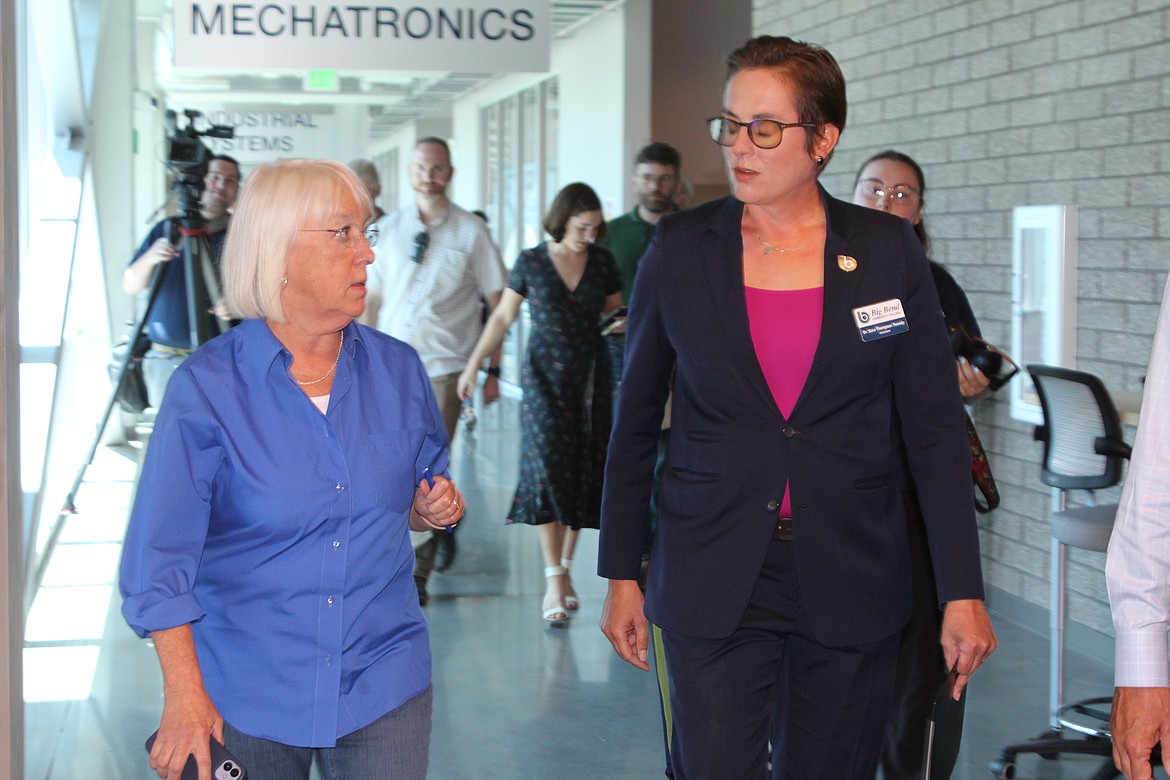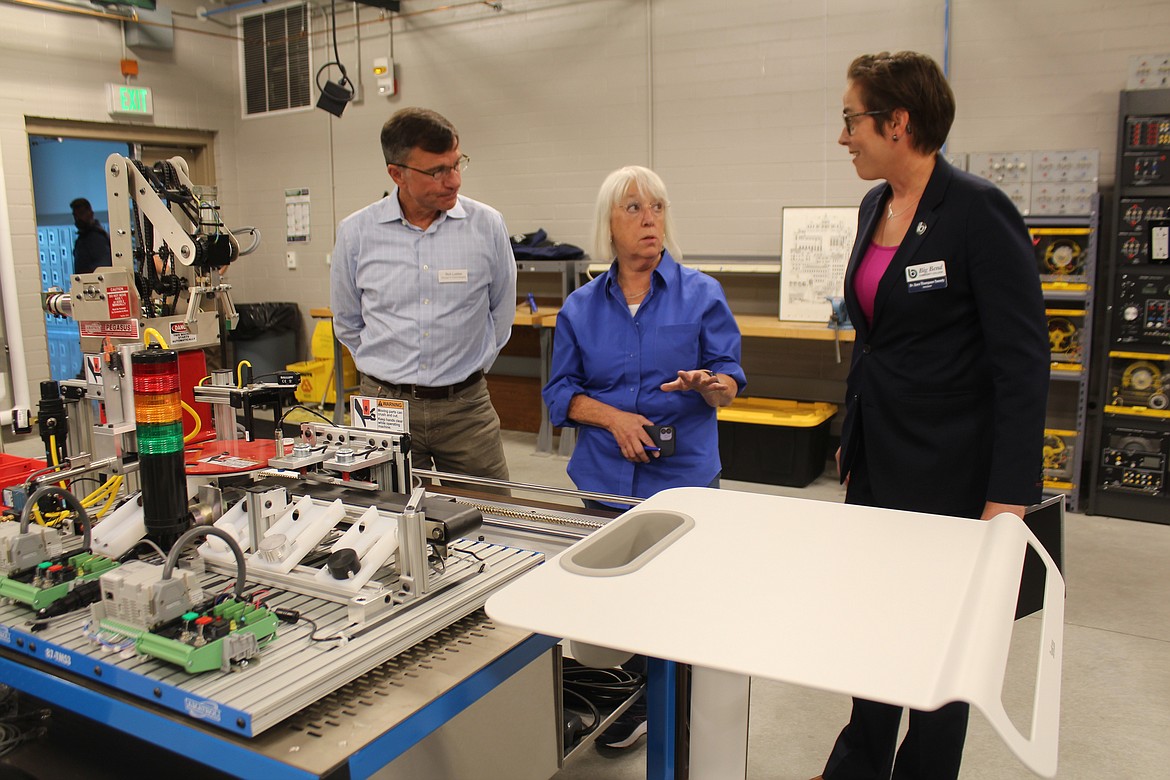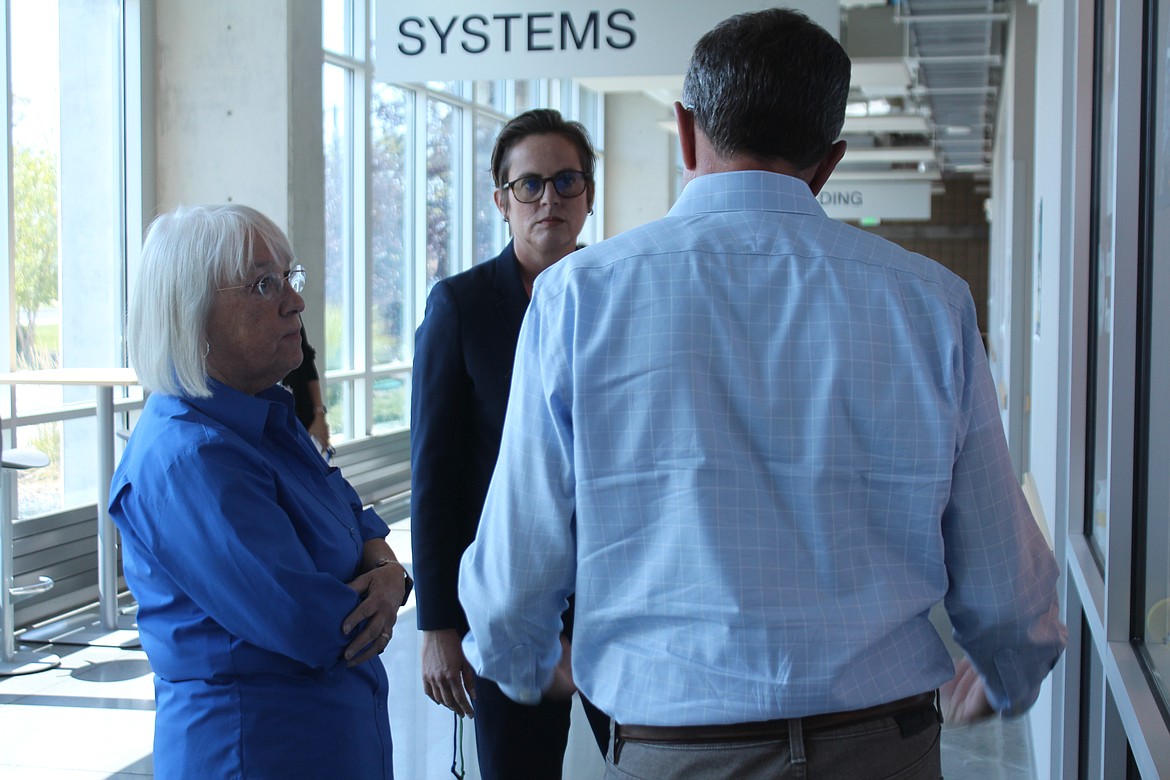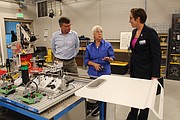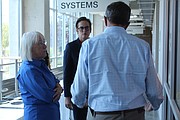Power, water, workforce and dams subjects during Murray visit
MOSES LAKE — Senator Patty Murray said Wednesday that she would not support the removal of four dams along the lower Snake River, at least until the Pacific Northwest has met the challenges the removal would create.
Murray said she had researched the issues involved in dam removal in partnership with Washington Gov. Jay Inslee and their conclusions were released last year.
“The governor and I spent a great deal of time talking to everybody who’s involved in this, from agriculture to people who use the river for transportation, to the tribes to the communities themselves involved, and came to the conclusion that we cannot remove the Snake River dams at this point because of all these issues,” she said.
The potential removal of the four dams has long been a topic of discussion in Washington, with proponents saying the structures are an obstacle to the recovery of salmon runs along the river. Murray said she thinks electrical generation, the economic development it fosters, and enhancing salmon runs are not mutually exclusive.
“Salmon recovery is very important. I spend a lot of my time making sure that we are making the right investments,” she said. “What I think is that we have to think about both and how we do both. How we make sure we are doing what we need to do for salmon recovery, but we also are growing a major economic opportunity in clean energy. And I think that’s the way we have to look at it, rather than saying either-or.”
Murray said alternatives must be developed before there can be discussion of dam removal.
“I think the governor and I were very clear in our study, that our region is not ready for that decision today,” she said. “We do not have the transportation infrastructure, we don’t have the replacement for energy, we don’t have the replacement for water. And, if we ever were to that point, we’ve got a lot of work to do to get there.”
Murray met with industry and government officials at Big Bend Community College Wednesday, talking about more environmentally friendly energy alternatives and the kind of training that would be needed to prepare people for jobs in those fields. Rick Luebbe, CEO and co-founder of the battery materials manufacturer Group14, said his company has broken ground on its new Moses Lake facility and expects the first phase to be open in about a year. Group14 received a $100 million grant from the U.S. Department of Energy, he said, which was a big benefit for the company.
Murray said she believes there must be publicly-funded support for these projects, even though some may fail.
“I think we’re going to have to move to a clean energy future - we are moving there,” she said. “We want the United States to be the one producing that. In order to do that, we have to make investments that help us get there.”
Big Bend president Sara Thompson Tweedy gave Murray a short tour of some of the college’s workforce education classrooms. In a discussion after the tour, Tweedy said workforce development of the kind needed by the businesses beginning to locate in Grant County is a priority.
In answer to a question from Murray, Tweedy said it’s important to make more training available to people in the towns where they live, places like Quincy, Othello and Mattawa. She cited an example from Mattawa, where there’s a big demand for English language training, but not enough faculty to meet it.
“I think that we can do a much better job of training our workforce if we were in those communities,” she said.
Participants in the discussion said among the biggest obstacles are the availability of electricity and water. Brant Mayo, director of the Grant County Economic Development Council, said completion of the Columbia Basin Project would help address some of the water issues. Mayo and Louis Szablya of the Grant County PUD said streamlining federal regulations would help with addressing some of the energy needs.
In answer to a question from Murray, Mayo said housing in Grant County is an issue, especially housing for people with lower and middle incomes.
“Housing is always an issue; affordable housing is probably the hot-button issue. We have a ton of housing starts, but there are a lot of regulations that are causing those costs to (go) up,” Mayo said.
Grant County Commissioner Rob Jones said Murray and her staff had provided assistance for a project to fix a bridge that will allow expansion of a Columbia Basin Project canal. Murray asked Jones, “as a politician,” about the level of support for environmentally friendly initiatives. Jones estimated about half the residents of the Moses Lake area were skeptical.
“Some people don’t believe it’s real or sustainable, and they wonder what’s going to happen when all these companies pull out of Grant County. Who’s it going to hurt?” Jones said. “Others are on board because it is the future, it’s where the government is going, and they support it.”
Murray said she thinks continued government support of the technology as it develops is critical.
“I think it’s truly exciting that communities like Moses Lake, part of our rural communities, are going to be producing that. I’m not worried about failure. Science always has failures,” she said. “But I have watched the growth of interest globally in clean energy. This is truly exciting for this community. So we’ve got to make the investment.”
Cheryl Schweizer may be reached at [email protected].

